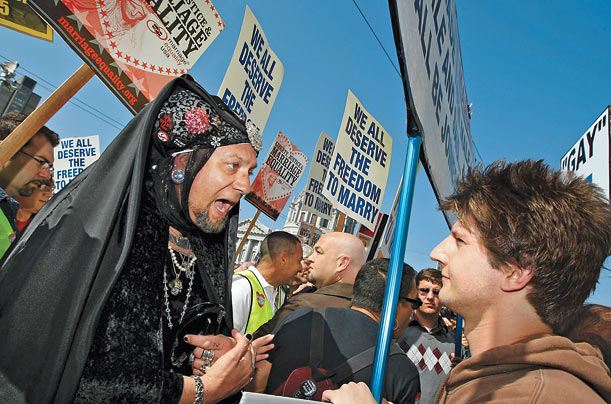
Like an impulsive starlet, California may find it harder to be cast as the nation's trendsetter if she can't decide what the trend should be in the first place. The state's supreme court ruled last year that California's constitutional right to marry extended to same-sex couples. Then in November voters amended the constitution to define marriage as between a man and a woman. Now the court has upheld voters' right to do so. Protesters have promised another referendum next year; fundraising letters from both sides are already in the mail. So was the California ruling an accident or an omen? Or both?
Across the country, most surveys indicate that the majority of people remain opposed to legalizing gay marriage — 57%, according to a recent Gallup poll. But as cultural battlefields go, opponents are on the losing side of demographics. Nearly 60% of those under 30 favor gay marriage, compared with fewer than 40% of older people. On other issues as well, attitudes have evolved in the direction of equality. Today more than two-thirds of Americans think that gays should be allowed to serve openly in the military and that their partners should have access to employee benefits like health care. Even Evangelical icon Rick Warren recently called the fight against gay marriage "very low" on his to-do list.
It's possible that the real battle will be in the gray areas, a fight more practical than ideological. As long as the laws are a patchwork, gay couples will face nasty tangles of rules and regulations if they move, separate or remarry. The 18,000 California couples who wed before Proposition 8 was passed remain legally married, but no one really knows the status of gay spouses who have moved to California from elsewhere (Iowa, Connecticut, Maine or Massachusetts, not to mention all of Canada). At least that will be true until the issue reaches a place that even California's ballot-crazy voters can't touch: the U.S. Supreme Court. But as with desegregation and abortion, a court ruling won't change attitudes overnight.